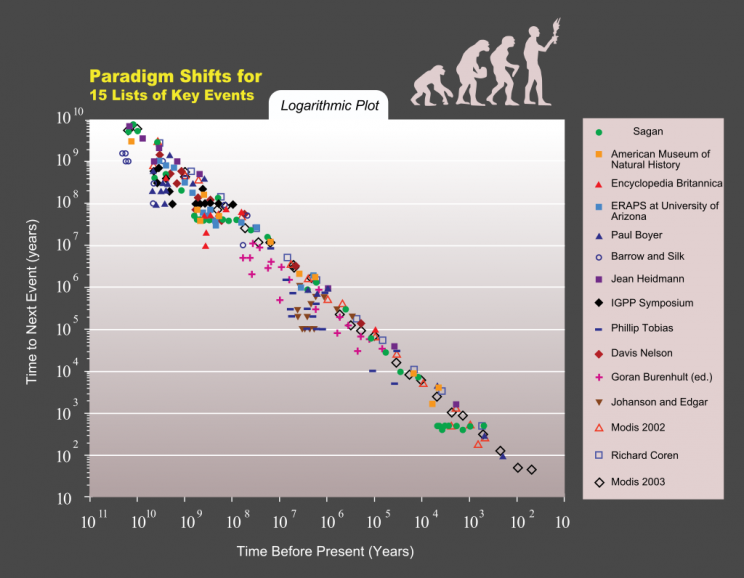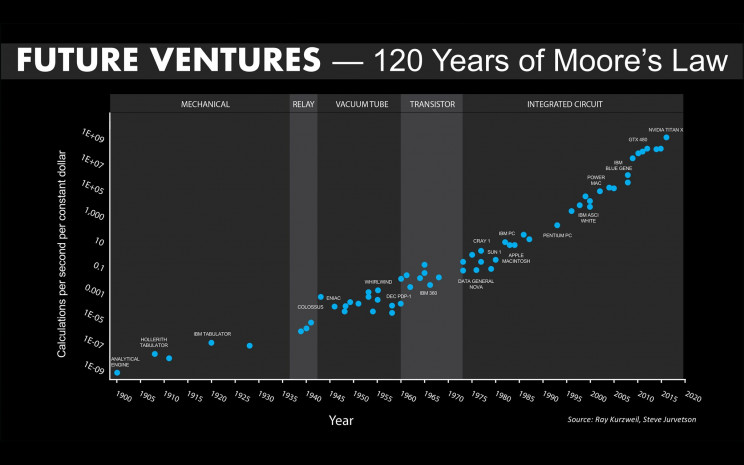Technological Singularity: An Impending “Intelligence Explosion”
In 1983, Vernor Vinge popularized the theory in an op-ed piece for Omni magazine where he contended that rapidly self-improving AI would eventually reach a "kind of singularity," beyond which reality would be difficult to predict. It was also here that the first comparison to a black hole was made:
"We will soon create intelligences greater than our own. When this happens, human history will have reached a kind of singularity, an intellectual transition as impenetrable as the knotted space-time at the center of a black hole, and the world will pass far beyond our understanding. This singularity, I believe, already haunts a number of science-fiction writers. ...
But perhaps the most famous proponent of the concept is noted inventor and futurist Ray Kurzweil. His 2005 book, The Singularity is Near: When Humans Transcend Biology, is perhaps his best-known work and expands on ideas presented in earlier books, most notably his "Law of Accelerating Returns."
This law is essentially a generalization of Moore's Law and states that the rate of growth in technological systems increases exponentially over time. He further cited how an exponential increase in technologies like computing, genetics, nanotechnology, and artificial intelligence would culminate and lead to a new era of superintelligence. ...
But of course, computing, information production, and the way advancements always appear to be coming faster are just a few of the pathways that could be leading us to the so-called Singularity. In part II, we will examine how advances in nanotechnology and medical technology are also leading us towards a point in time beyond which the future will be difficult to predict. ...
See the full story here: https://interestingengineering.com/technological-singularity-an-impending-intelligence-explosion


Pages
- About Philip Lelyveld
- Mark and Addie Lelyveld Biographies
- Presentations and articles
- Tufts Alumni Bio